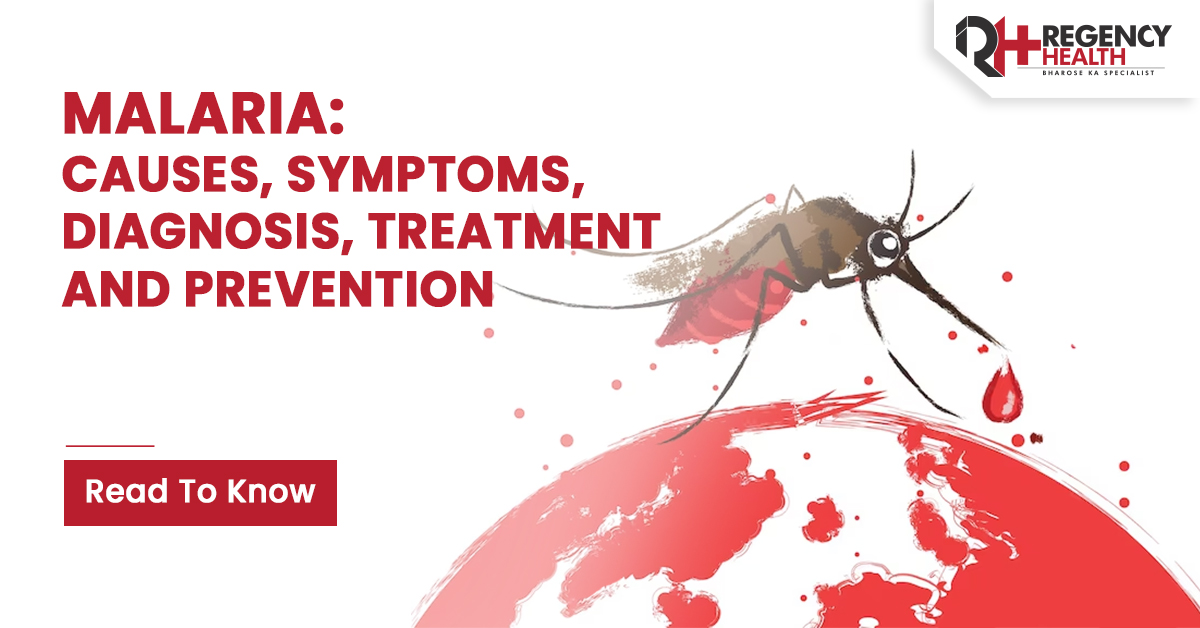
Malaria is a serious and sometimes fatal disease caused by parasites that are transmitted to people through the bite of infected mosquitoes. Despite being preventable and curable, malaria continues to affect millions of people, especially in tropical and subtropical regions. Early detection, proper treatment, and preventive measures are key to controlling the spread of this life-threatening illness.
What is Malaria?
Malaria is caused by Plasmodium parasites, which are spread to humans through the bites of female Anopheles mosquitoes. Once inside the human body, the parasites travel to the liver, multiply, and eventually enter the bloodstream, infecting red blood cells.
There are five types of Plasmodium that can cause malaria in humans:
- Plasmodium falciparum (most severe)
- Plasmodium vivax
- Plasmodium oval
- Plasmodium malariae
- Plasmodium knowlesi
Causes of Malaria
Malaria is transmitted through the bite of an infected Anopheles mosquito, which typically bites between dusk and dawn.
- The parasite enters the bloodstream and travels to the liver.
- In rare cases, malaria can be transmitted through blood transfusions, organ transplants, or from mother to baby during childbirth.
- The disease is more prevalent in regions with warm climates, stagnant water, and poor mosquito control.
Symptoms of Malaria
Symptoms usually appear 10–15 days after the mosquito bite, depending on the type of parasite. Malaria symptoms can range from mild to severe and may resemble the flu in the early stages.
Common Symptoms:
- High fever and chills
- Sweating and fatigue
- Headache and body aches
- Nausea, vomiting, and diarrhea
- Muscle pain and weakness
Severe Malaria Symptoms (Medical Emergency):
- Difficulty breathing
- Confusion or seizures
- Jaundice (yellowing of the skin and eyes)
- Organ failure or shock
Diagnosis of Malaria
Early and accurate diagnosis is crucial for effective treatment.
Diagnostic Methods:
- Blood Smear Microscopy: A drop of blood is examined under a microscope to detect the presence of malaria parasites.
- Rapid Diagnostic Tests (RDTs): Provide quick results by detecting malaria antigens in the blood.
- PCR Tests: Used in advanced labs to identify parasite species precisely (less common in resource-limited settings).
A confirmed diagnosis helps determine the correct treatment approach and the specific type of Plasmodium involved.
Treatment of Malaria
Malaria is treatable, especially when diagnosed early. The type of medication and duration of treatment depend on the parasite type and the severity of the disease.
Standard Treatments:
- Antimalarial Drugs: Such as artemisinin-based combination therapies (ACTs), chloroquine, or quinine.
- Supportive Care: Hydration, fever control, and monitoring for complications.
- Hospitalization: Required for severe malaria to provide IV drugs, oxygen, and intensive monitoring.
It is important to complete the full course of medication to prevent recurrence or drug resistance.
Prevention of Malaria
Since there is no universal malaria vaccine (though RTS,S is available in some regions), prevention focuses on avoiding mosquito bites and controlling mosquito populations.
Effective Prevention Measures:
- Use insecticide-treated mosquito nets while sleeping.
- Apply mosquito repellents on exposed skin.
- Wear long-sleeved clothes, especially in the evening and at night.
- Eliminate standing water around homes to prevent mosquito breeding.
- In high-risk areas, take preventive antimalarial medications as advised by your healthcare provider.
Who is at Risk?
Anyone living in or traveling to malaria-endemic regions is at risk. High-risk groups include:
- Children under 5 years
- Pregnant women
- Older adults
- Travelers from non-endemic areas
- People with weakened immune systems
Conclusion
Malaria remains a global health concern but is preventable and curable with the right precautions and timely medical care. If you experience fever or flu-like symptoms after visiting a malaria-prone area, seek immediate medical attention. By staying informed, using mosquito protection, and promoting environmental hygiene, we can take significant steps toward a malaria-free world. For expert care and early treatment, trust Regency Hospital Lucknow to support your health journey.
Also Read: The Fight against Malaria

 Call-an-Ambulance
Call-an-Ambulance



